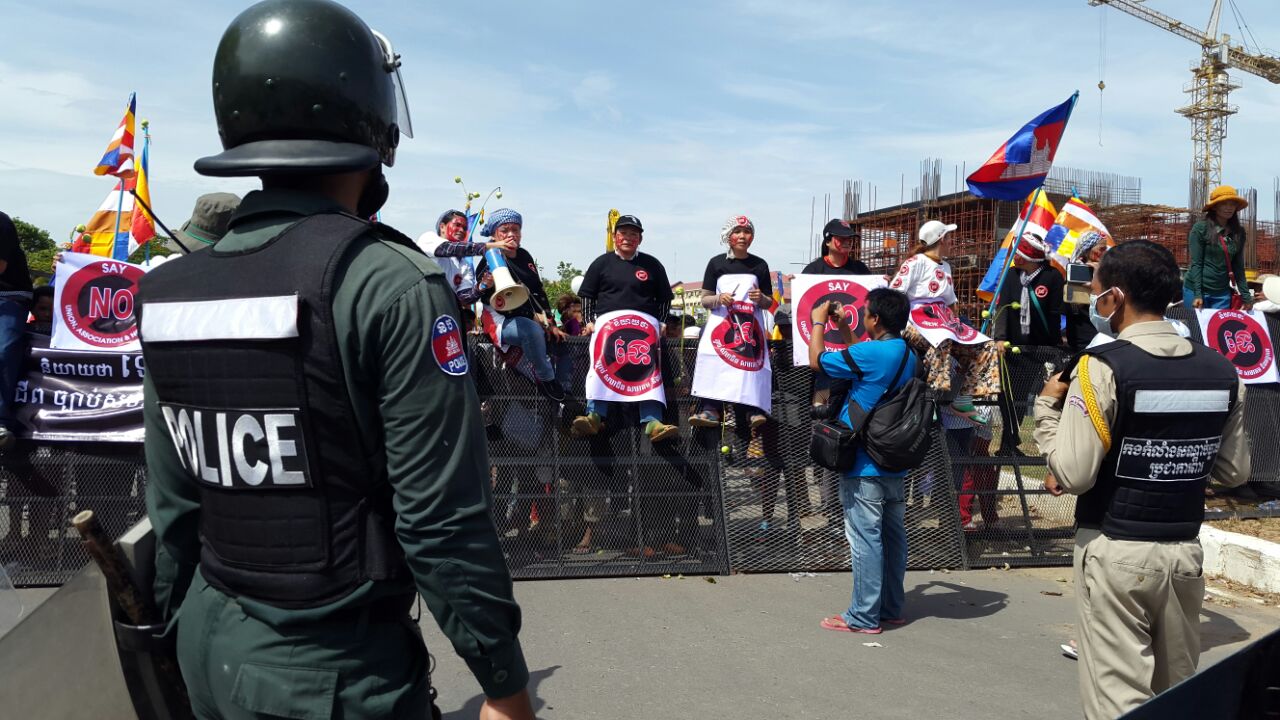The past month has been a blur of activity and emotion as LICADHO has, alongside numerous others, led a campaign against an NGO and Association law that, if enacted, will effectively give the government a kill-switch for critical civil society. The Law on Associations and NGOs, or more commonly, LANGO, requires mandatory registration of all NGOs and any group of citizens who “work together for a common purpose” and gives the Minister of Interior the power to ban any group that threatens the peace, security, traditions or “good culture” of Cambodia. In a country where vague laws are the basis for arresting and jailing activists, there is no doubt that LANGO will be a powerful tool to silence dissenting voices.

While human rights NGOs like LICADHO certainly have much to fear from the enactment of such a law, it is community and grassroots activists that have the most to fear. In the past years an influx of foreign investment has caused the value of urban and rural land to skyrocket, prompting numerous corrupt land-dealings that force poor communities from their homes. Many of those evicted communities have organized prominent campaigns against the government, bringing, from its perspective, unwanted attention to their plight. In the past the government has not hesitated to use police and private security guards to brutalize protestors or abuse the judicial system to imprison them. Now, with senior politicians spouting conspiratorial theories that the CIA and MI6 are funding such subversive groups, LANGO will make all such community movements de jure criminal organizations.
The campaign against LANGO has been a process of organized chaos, made all the more difficult by the fact that a draft of the law was only obtained via a government leak a month ago. However the Say No campaign has also been inspiring, with youth creating songs and music videos denouncing the law, organizations releasing thousands of balloons across the city, and groups coming together to protest despite government warnings not do so. And as a result of tireless efforts of numerous campaigners the chorus of critical voices has steadily increased, both domestically and abroad. Yet despite the resistance, the law passed through the National Assembly on Monday with the opposition party boycotting the vote. Now all the law needs is approval by the government controlled senate and signature by the king.
And so it is easy to be disheartened. The future of not only LICADHO, but Cambodia as a whole has become immensely uncertain, particularly as government plans to pass other repressive laws, leaving little room for hope – other than in the knowledge that there are many across Cambodia willing to continue speak out (though it is the risks of doing so that continue to worry me). It has left me with many questions to consider; questions about the failure of development organizations to speak out on behalf of Cambodia, of the reticence of foreign governments to get involved, of what it means to express solidarity where the risks are disproportionately felt by your local allies. But for now I am too tired to answer them and can only hope that the next weeks bring a welcomed change of course.

